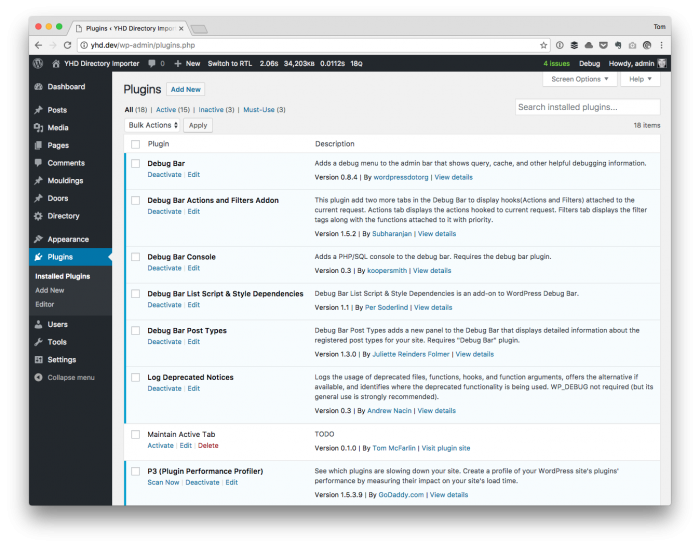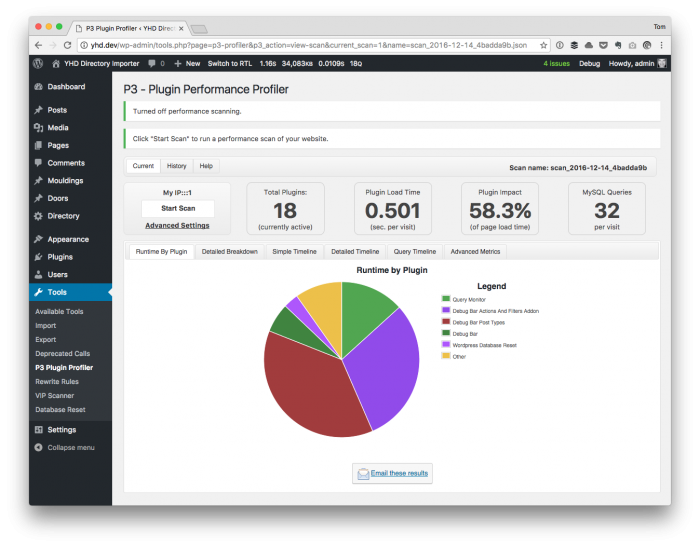In the previous post, I shared the 10 (well, 11 if you count Slack., but I think that’s debatable) tools I currently use for WordPress development. But I also said that I’d cover the tools I use within WordPress – or WordPress plugins for development – that I use when working on a project.

If you’ve read this blog for any length of time, then you’ve likely heard me talk about some of these at one point or another, but having them all captured in a single post can be useful especially when I want to refer others to them.
So this is the short list of plugins that I’ve found to be useful when building projects both for myself and for others.
WordPress Plugins For Development
First, this particular post is meant to be a continuation of what I covered in the previous post. Secondly, this post is bound to change as the industry (and our segment of it) often does. As such, I’ll likely be providing updated posts for this kind of stuff in the future.

But with that said, these are the plugins I run in every local installation of WordPress when I’m working on a project:
- Debug Bar. This plugin adds a menu to the admin bar showing information about queries, your cache information, and other debugging information. It’s extendable which is why the next few follow it.
- Debug Bar Actions and Filters. For any given request, this plugin shows the hooks that are attached to it.
- Debug Bar Console. This allows us to run PHP and MySQL commands from within the WordPress admin. I don’t recommend it for large chunks of code, of course, but for small one offs.
- Debug Bar List Script and Styles. This simply lists all of the JavaScript the CSS dependencies for a given project. It’s useful if you’re working on your project that may need something that is already loaded.
- Debug Bar Post Types. For all of the projects that include custom post types (which will vary by project), this will give you an insight into all of the information for said post types.
- Log Deprecated Notices. This is arguably one of my favorite plugins as it will let you know when you’re using deprecated code that’s needs to be updated for the version of WordPress you’re running.
- Plugin Performance Profile. This plugin will generate a profile of the performance of your site and will show you which plugins’ are negatively impacting your site’s load time.
- Query Monitor. This is another favorite plugin that I highly recommend in that it monitors database queries, hooks, conditionals, and more information about a current page request. It also gives detailed information about everything that’s happened on a given page.
- Theme Check. I don’t do a lot of work with WordPress themes anymore, but when a project calls for it, this particular plugin will make sure that your theme is up to the latest set of coding standards.
- User Switching. If you’re working on a plugin that deals with user permissions, this plugin makes it easy to quickly switch among accounts you have on your account to evaluate if your code if performing as expected for a given role.
- WordPress Database Reset. One of the challenges of writing a custom solution for others is that we often clutter the database with a lot of junk information. This plugin makes it ridiculously easy to reset the database back to its initial state so we can start all over again.
Note, I may not use all of these for each project, but they are the ones I always install. Further, there are projects in which I use all of them.
And I think that’s a good rule of thumb to remember when working with some of this stuff: Don’t feel compelled to find a reason to use them for every single project. Otherwise, you’re just making work for yourself.
Use what you need for each project and then move forward from there.
As usual, if you have questions or have more you want to share, then don’t hesitate to let me know via Twitter.

